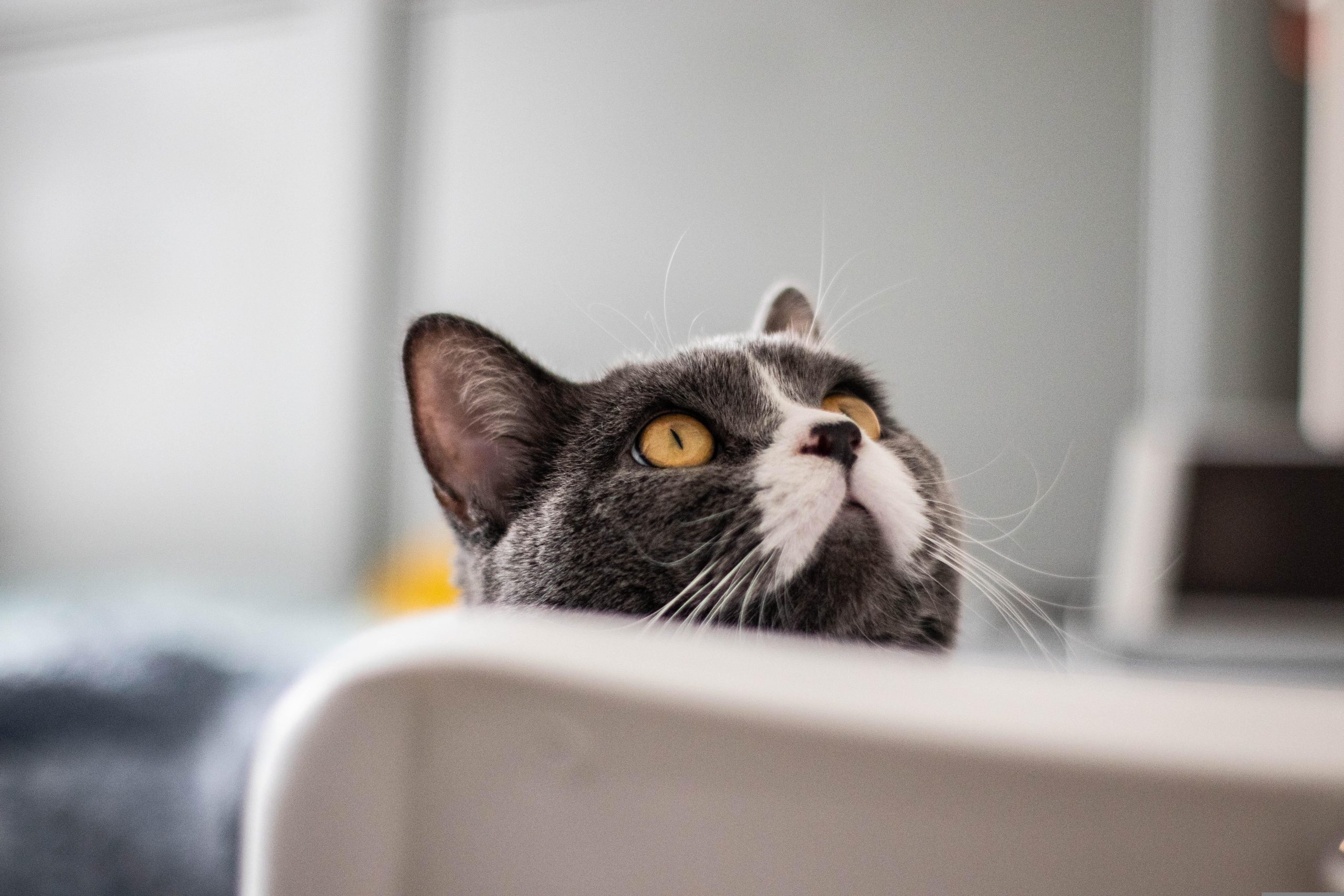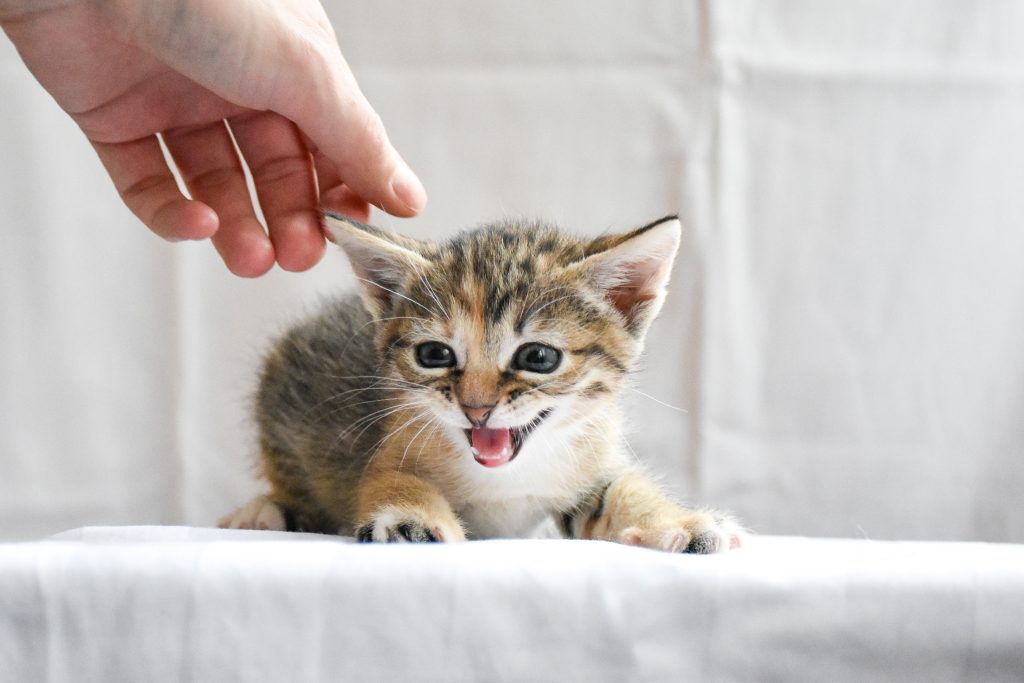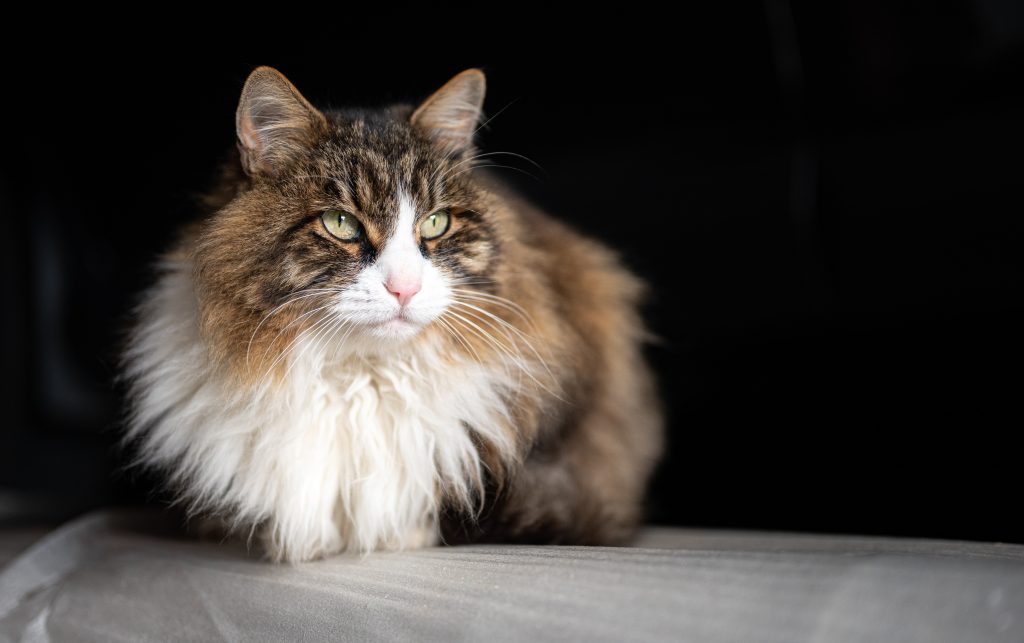Flea Allergy Dermatitis –Excessive grooming, hair loss, scabs, and red, inflamed skin are a few common symptoms of Flea Allergies seen in cats, it can be caused by allergic reaction to flea bites. The treatments can include flea control, anti-inflammatory medication, and allergy shots. Prevention: Regular flea control and prevention measures.
Ringworm: Most common symptoms of ringworm in cats are Circular patches of hair loss, red, crusty skin, it is majorly caused by fungal infection. The treatment for ringworm involves antifungal medications, topical treatments, and environmental decontamination. The best way to prevent ringworms in your feline friend is good hygiene, avoiding contact with infected animals, and routine grooming.
Miliary Dermatitis: Small, raised, crusty bumps, itching, and hair loss are the most common symptoms seen in cats suffering from Miliary dermatitis. Common Causes are hypersensitivity reactions, allergies, or underlying medical conditions. The treatment usually involves identifying and addressing the underlying cause, anti-inflammatory medication, and allergy management. Prevention of Identifying and avoiding triggers, regular grooming, and a healthy diet.
Feline Acne: Blackheads or pus-filled bumps around the lips and chin are the common symptoms of feline acne. Causes usually involve hormonal imbalances, poor grooming habits, or plastic food bowls. Treatment of Feline Acne involves Topical treatments, antibiotics, and switching to stainless steel food bowls. Prevention of this can be regular cleaning of facial areas and food bowls and using stainless steel bowls.
For any persistent or severe skin issues in cats, it’s essential to consult with a veterinarian for proper diagnosis and treatment. Maintaining good hygiene, regular grooming, and a healthy diet can also help prevent many skin problems.
Tips on Nutrition and Wellness for cats with Skin Issues
Caring for a cat with skin issues can be challenging, but understanding the role of nutrition and wellness can greatly alleviate their discomfort and promote healing. Here are some valuable tips to consider:
Identify and Eliminate Food Allergies: Food allergies are a common cause of skin problems in cats. Work with your veterinarian to identify and eliminate potential allergens from your cat’s diet. Common culprits include beef, dairy, wheat, and fish. Switching to a hypoallergenic or novel protein diet can help reduce skin inflammation and itching.
Increase Omega-3 Fatty Acids: Omega-3 fatty acids, such as those found in fish oil supplements or omega-rich foods like salmon, have anti-inflammatory properties that can help soothe skin irritation and promote a healthy coat. These fatty acids also support a strong skin barrier, reducing the risk of environmental allergens penetrating the skin.
Boost Antioxidants: Antioxidants like vitamin E and vitamin C can help neutralize free radicals and reduce oxidative stress, which can contribute to skin problems. Include antioxidant-rich foods like blueberries, spinach, and pumpkin in your cat’s diet, or consider a supplement recommended by your veterinarian.
Probiotics for Gut Health: Many skin issues in cats are linked to gut health and imbalances in the microbiome. Probiotics can help restore a healthy gut flora, which in turn can improve skin health. Look for cat-specific probiotic supplements or consider adding fermented foods to their diet.
Promote Hydration: Proper hydration is essential for healthy skin and coat. Ensuring your cat has access to fresh, clean water at all times, and consider adding moisture-rich foods like wet canned food or bone broth to their diet.
Regular Grooming: Gentle grooming can help remove loose hair, dander, and any environmental irritants that may be causing skin issues. Use a soft brush or comb and be mindful of any sensitive areas.
Environmental Control: Identify and minimize exposure to potential environmental allergens or irritants, such as harsh cleaning products, cigarette smoke, or certain fabrics. Use hypoallergenic bedding and consider air purifiers to improve indoor air quality.
Remember, it’s essential to work closely with your veterinarian to diagnose and treat any underlying medical conditions contributing to your cat’s skin issues. With the right combination of nutrition, supplements, and environmental adjustments, you can help alleviate your feline friend’s discomfort and promote overall skin and coat health.




 Unlimited access and follow ups for continuous pet care
Unlimited access and follow ups for continuous pet care 








